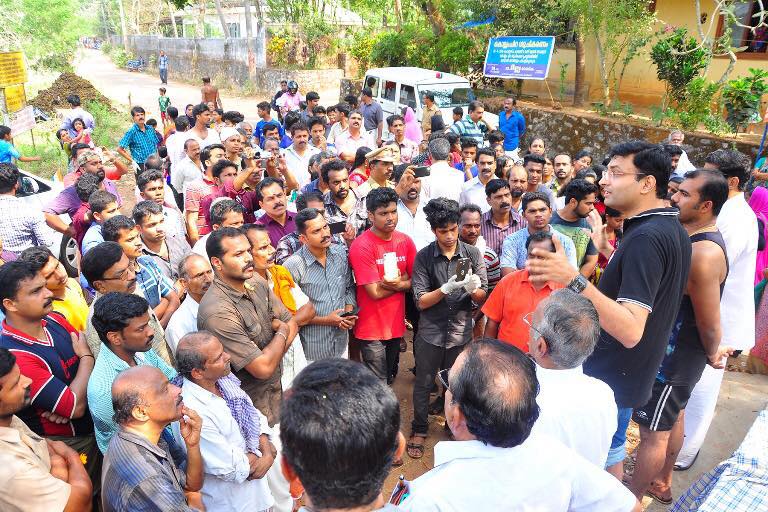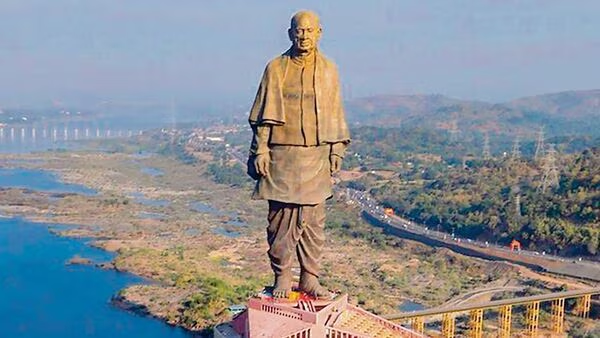PRASANTH NAIR
IAS
In India, the phrase ‘work is worship’ is taken so seriously that people tend to exhaust decades of their lifetime toiling in a work environment devoid of fun and enjoyment. The idea that one’s working place can only function properly if there is extreme order and hierarchical reverence is something that is unquestioningly practised in India in all Government offices and most private concerns.
Why can’t workspaces in our country be less rigid and decorum-centric, and instead be work-centric, letting employees enjoy what they do – instead of making them continually dreading about what could go wrong? Why should we be obsessed with formal procedures and least concerned of the actual results?

Why should a boss desperately try and show ‘who is the boss’ by picking faults and shouting at the subordinates? And why should a subordinate be servile to the boss?
One stark difference that I’ve noticed between India and many other countries, especially the European countries, concerning work culture is that, employees, irrespective of which sector they are engaged in, appear much happier. And this has more to do with work-culture than with the general prosperity of the place. It has more to do with equity and informality at the work-place and not compromising the self-respect of the employees.
Is it good to get emotional or personal with work? Yes, provided it’s the fun part. As a junior IAS Officer, I headed two World Bank Projects where we all addressed each other by first name and no sky fell upon us.
Generally, in India, saying ‘sir’ to express ‘official’ respect is the divine rule. But it was a great learning experience to work in an environment where you were a team – not seeking to desperately prove at every moment that you are the boss.
Getting personal with work is cool, taking your work into your personal private space is uncool.
In Germany, there is a fine line between work and private life and this is valued so vehemently that their government has legally banned official calls and emails after office hours. This applies to private and government employees. And regarding productivity, we all know that they are at the top in the game.
In France, there the right to disconnect under the ‘El Khomri Law’, which has been emulated to different measures in Germany, Italy and other European countries. They all seem to know that all work and no play really makes Jack a dull, inefficient and ineffective boy.
Good humour is the best medicine to beat dullness at work. Not only does this open up doors for cordiality and directness in an organisational structure, but it also helps dissolve the hierarchical gap that has always remained between higher and lower echelons.
Breaking the hierarchical divide, using humour as a tool, has been one of my fundamental obsessions. This I believe, has enabled people working in my team, irrespective of their position, to feel free to pitch in their ideas and offer suggestions without feeling scared or apprehensive of rejection.

Not only have I received some of the best feedback and advice through this process, but I have also observed that our workspaces showcased better productivity and happier staffs.
The ‘Compassionate Kozhikode’ initiative, which had innovations like ‘Operation Sulaimani’ and ‘Tere Mere Beach Me’, wouldn’t have been possible without the collective brain-storming effort of the entire team. We collectively tried out more than hundred innovative experimental projects, some of which were partial failures as well.
Not being scared of failure is tough in government because you have no incentive for innovation, but you have plenty of penalties for even bonafide mistakes. Taking up such tasks as a team makes the risk seem lighter and having open informal channels of feedback communication makes failure less probable. Humour even helps the team take failure in the chin. This could be cited as another instance of how approachability and friendly work culture can do the spadework for innovative and effective output.
On February 23, 2015, when the official Facebook page was launched for the District Collector, Kozhikode, it was one of the first official social media engagements of that nature. In 2018 nobody would think much of it, but back then it was a first in India. We could establish it as the preferred mode of communication by citizens to sort out their problems, throw up an idea or even mark a protest.
I would like to share one incident – a man turned up at our office with a written complaint and casually mentioned that he had sent it on FB a day before.
When I told him that his grievance has already been tended to based on his FB complaint, the expression of surprise on the man is something I will never forget! That sort of experience is what I would love to have got as a citizen, when I was at the other end of the table.
As for the impact that social media can create and how we can put it to use for better governance, I can’t come up with a better example than the Kozhikode administration page. The number of followers was over 2.5 lakh and the post reaches were well beyond 10 lakh. All organic. This iterates my conviction over social media being the next big thing for governance and as a change-propelling platform.
What worked for us was the informal light-hearted communication that we adopted.
What did not work for us was that we were the first to do so.
I was vehemently criticised by the status-quoists, the technologically challenged, a few politicians and the middle-men who benefitted from the lack of direct access.
Quite amusingly, the moniker, “Collector Bro” was coined through these various FB exchanges, when people started addressing me as ‘bro’ instead of ‘sir’. The name stuck.

For India to have an enhanced work culture that rises above dense and rigid working environments and paves the way for a friendlier atmosphere and satisfied employees, the first step for organisations and its management is to break barriers between its echelons by encouraging collective participation.
Every voice has to be heard and acknowledged. We need to understand and attune the language of administrative communication according to the popular culture and ethos of the mass. Creativity should be unleashed and innovation should be encouraged. Humour and informality should be in the air.
When we launched ‘Operation Sulaimani’, the name inspired by the Malayalam film, ‘Ustad Hotel’, we harped on an iconic dialogue from the film, “Every Sulaimani needs a bit of Mohabbat in it. When you sip, the world should slow down and pause here.”
This is precisely how anything in life should be undertaken—with a bit of Mohabbat. So why not emulate the same in one’s work and workplace to make a better India?
കടപ്പാട്: BetterIndia


















